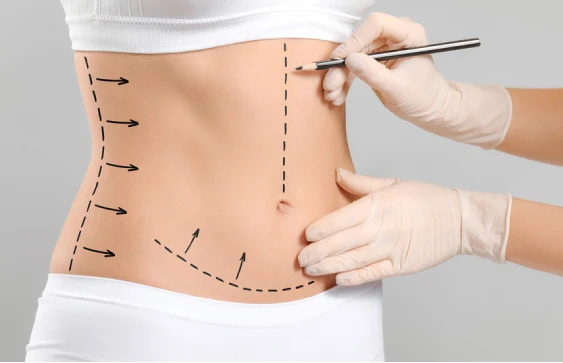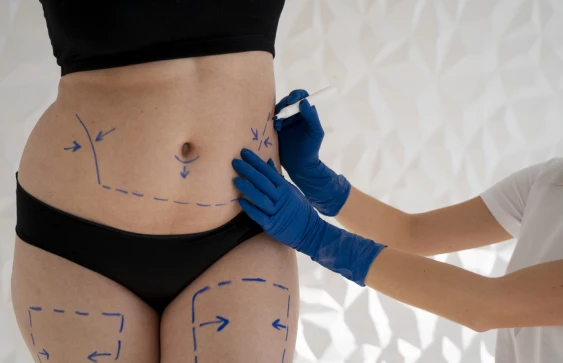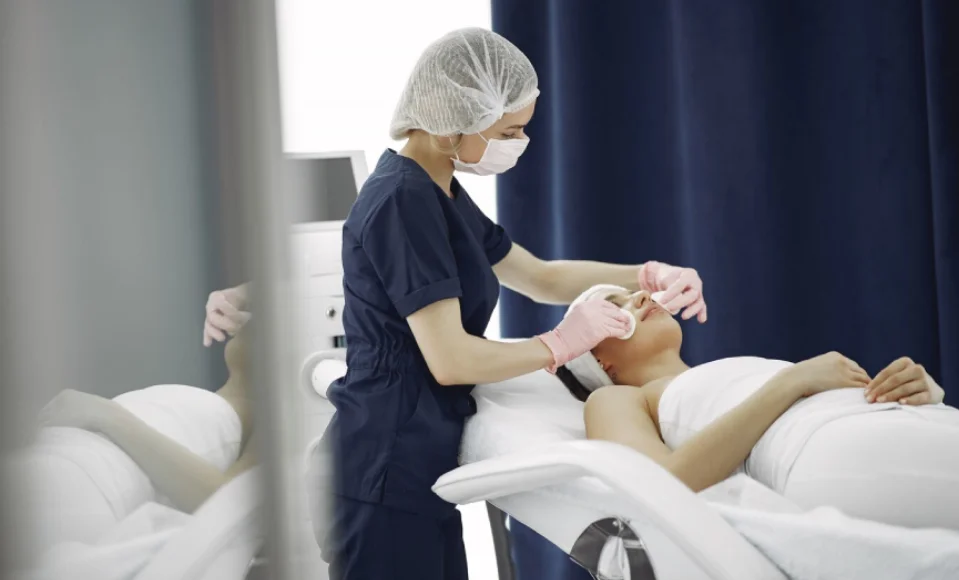
What is a tummy tuck?
Tummy tuck surgery, also known as abdominoplasty, removes excess fat and skin and, in most cases, restores weakened or separated muscles creating an abdominal profile that is smoother and firmer.
A flat and well-toned abdomen is something many of us strive for through exercise and weight control. Sometimes these methods cannot achieve our goals.
Even individuals of otherwise normal body weight and proportion can develop an abdomen that protrudes or is loose and sagging. The most common causes of this include:
- Aging
- Heredity
- Pregnancy
- Prior surgery
- Significant fluctuations in weight
What tummy tuck surgery can’t do
A tummy tuck is not a substitute for weight loss or an appropriate exercise program.
Although the results of a tummy tuck are technically permanent, the positive outcome can be greatly diminished by significant fluctuations in your weight. For this reason, individuals who are planning substantial weight loss or women who may be considering future pregnancies would be advised to postpone a tummy tuck.
A tummy tuck cannot correct stretch marks, although these may be removed or somewhat improved if they are located on the areas of excess skin that will be excised.


FAQ
FREQUENTLY ASKED QUESTIONS
A tummy tuck is a highly individualized procedure. You should do it for yourself, not to fulfill someone else’s desires or to try to fit any sort of ideal image.
In general, you may be a good tummy tuck candidate if:
- You are physically healthy and at a stable weight
- You have realistic expectations
- You are a nonsmoker
- You are bothered by the appearance of your abdomen
The average cost of a tummy tuck (abdominoplasty) is $7,215, according to the latest statistics from the American Society of Plastic Surgeons. This average cost is only part of the total price – it does not include anesthesia, operating room facilities or other related expenses. Please consult with your plastic surgeon’s office to determine your final fee.
A surgeon’s fee for tummy tuck surgery will be based on his or her experience, the type of procedure used and the geographic office location.
Most health insurance plans do not cover tummy tuck surgery or its complications, but many plastic surgeons offer patient financing plans, so be sure to ask.
Tummy tuck costs may include:
- Anesthesia fees
- Hospital or surgical facility costs
- Medical tests
- Post-surgery garments
- Prescriptions for medication
- Surgeon’s fee
When choosing a board-certified plastic surgeon in your area for a tummy tuck, remember that the surgeon’s experience and your comfort with him or her are just as important as the final cost of the surgery.
During your tummy tuck consultation be prepared to discuss:
- Your surgical goals
- Medical conditions, drug allergies and medical treatments
- Current medications, vitamins, herbal supplements, alcohol, tobacco and drug use
- Previous surgeries
Your tummy tuck surgeon will also:
- Evaluate your general health status and any pre-existing health conditions or risk factors
- Take photographs
- Discuss your options
- Recommend a course of treatment
- Discuss likely outcomes of the tummy tuck and any risks or potential complication
The success and safety of your tummy tuck procedure depends very much on your complete candidness during your consultation. You’ll be asked a number of questions about your health, desires and lifestyle.
The consultation is the time to ask your plastic surgeon questions. To help, we have prepared a checklist of questions to ask your tummy tuck surgeon that you can take with you to your consultation.
Use this checklist as a guide during your tummy tuck consultation:
- Are you certified by the American Board of Plastic Surgery?
- Were you specifically trained in the field of plastic surgery?
- How many years of plastic surgery training have you had?
- Do you have hospital privileges to perform this procedure? If so, at which hospitals?
- Is the office-based surgical facility accredited by a nationally- or state-recognized accrediting agency, or is it state-licensed or Medicare-certified?
- Am I a good candidate for this procedure?
- What will be expected of me to get the best results?
- Where and how will you perform my procedure?
- What surgical technique is recommended for me?
- How long of a recovery period can I expect, and what kind of help will I need during my recovery?
- What are the risks and complications associated with my procedure?
- How are complications handled?
- How can I expect my stomach to look over time? After pregnancy?
- What are my options if I am dissatisfied with the cosmetic outcome of my tummy tuck?
- Do you have before-and-after photos I can look at for this procedure and what results are reasonable for me?
The decision to have plastic surgery is extremely personal, and you’ll have to decide if the benefits will achieve your goals and if the risks and potential complications of tummy tuck surgery are acceptable.
You will be asked to sign consent forms to ensure that you fully understand the procedure and any risks.
Tummy tuck risks include:
- Anesthesia risks
- Asymmetry
- Bleeding
- Deep vein thrombosis, cardiac and pulmonary complications
- Fatty tissue found deep in the skin might die (fat necrosis)
- Fluid accumulation (seroma)
- Infection
- Numbness or other changes in skin sensation
- Persistent pain
- Poor wound healing
- Possibility of revisional surgery
- Recurrent looseness of skin
- Skin discoloration and/or prolonged swelling
- Skin loss
- Suboptimal aesthetic result
- Unfavorable scarring
These risks and others will be fully discussed prior to your consent. It’s important that you address all your questions directly with your plastic surgeon.
In preparing for tummy tuck surgery, you may be asked to:
- Get lab testing or a medical evaluation
- Take certain medications or adjust your current medications
- Stop smoking
- Avoid taking aspirin, anti-inflammatory drugs and herbal supplements as they can increase bleeding
A tummy tuck may be performed in an accredited office-based surgical facility, licensed ambulatory surgical center or a hospital.
If your tummy tuck is performed on an outpatient basis, be sure to arrange for someone to drive you to and from surgery and to stay with you for at least the first night following surgery.
